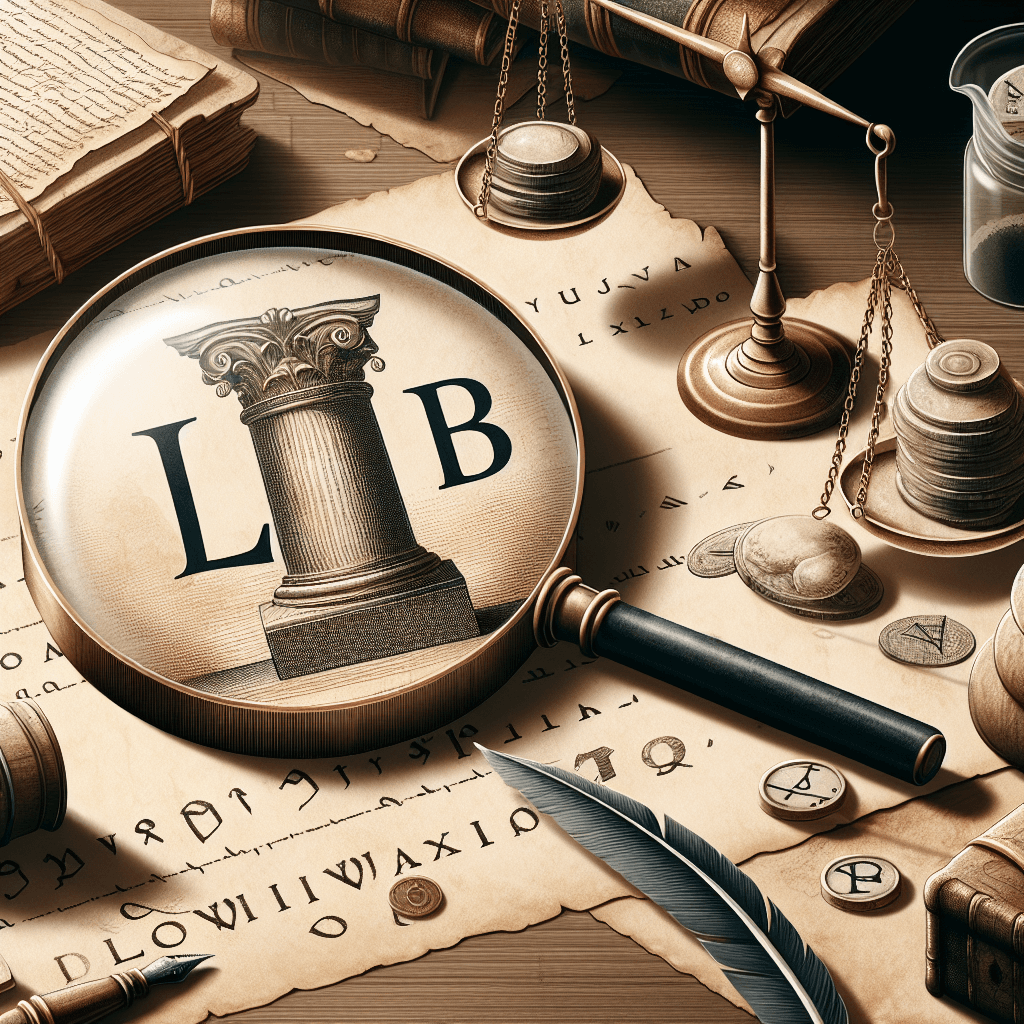Why do we abbreviate the word pound using the letters lb
There isn't an 'L' or a 'B' in the word 'pound,' so why is that its abbreviation? Uncover the fascinating story that connects this modern measurement to the heart of the Roman Empire.


Too Long; Didn't Read
TLDR: The abbreviation lb comes from the Latin phrase libra pondo, which translates to pound by weight. We took the word pound from pondo and the abbreviation lb from libra.
From Ancient Rome to Your Grocery Store: Why Do We Abbreviate Pound as 'lb'?
Have you ever paused in a grocery aisle, looked at a bag of flour, and wondered, "Why is the word 'pound' abbreviated as 'lb'?" There’s no 'l' or 'b' in 'pound', so where did this seemingly random abbreviation come from? It’s not a typo or a modern invention; it's a fascinating linguistic fossil that traces its origins all the way back to the Roman Empire. This blog post will unravel the historical mystery behind 'lb' and explain how two ancient Latin words created the modern naming convention we use every day.
The Ancient Roman Origin: Libra Pondo
The key to understanding the 'lb' abbreviation lies in a Latin phrase: libra pondo. This was a fundamental concept of measurement in ancient Rome and translates roughly to "a pound by weight." Let's break down this crucial phrase:
- Libra: This word had a dual meaning. It referred to "balance" or "scales," the tool used for weighing. It also represented a specific Roman unit of mass, the libra, which was equivalent to about 329 grams.
- Pondo: This word comes from the Latin pendere, meaning "to weigh." Pondo was an adverb that meant "by weight."
When Romans measured something, they would describe it using the phrase libra pondo. Over time, the term libra became synonymous with the unit of weight itself. It was the standard by which things were measured.
From Libra to 'lb': The Birth of an Abbreviation
Just as we shorten words today for convenience (think 'etc.' for et cetera or 'e.g.' for exempli gratia), ancient and medieval scribes heavily used abbreviations to save time and precious space on parchment. The common unit of weight, libra, was frequently shortened to simply "lb." This scribal shortcut caught on and became the standard written symbol for this unit of measurement across the Roman world and its successors.
Interestingly, the astrological sign Libra is represented by a set of scales, a direct link to the original meaning of the Latin word. The British currency, the pound sterling, also gets its symbol (£) from a stylized letter 'L'—standing, once again, for libra.
And 'Pondo' Became 'Pound'
So, if the abbreviation comes from libra, where did the word "pound" come from? It evolved from the second half of the phrase, pondo.
As the Latin language influenced the development of Germanic languages, including Old English, the word pondo was adopted and adapted. It morphed into the Germanic word pund. When you say "pund" out loud, it’s easy to hear how it eventually smoothed into the modern English word we use today: "pound."
In essence, a linguistic split occurred. English speakers adopted:
- The word for the unit of weight from the Latin pondo.
- The abbreviation for the unit of weight from the Latin libra.
We ended up with a spoken word from one part of the Roman phrase and a written symbol from the other. This is why there is no direct connection between the letters in "pound" and the letters in its abbreviation, "lb."
A Lasting Legacy
The story of 'lb' is a perfect example of how language is a living, breathing entity, shaped by centuries of history, conquest, and cultural exchange. What began as a practical measurement phrase in ancient Rome has left a permanent, if slightly confusing, mark on the English language. This historical journey explains why we have one word for speaking and a completely different-looking symbol for writing.
So, the next time you weigh produce or read a shipping label, you can appreciate the small piece of Roman history hiding in plain sight. The humble 'lb' isn't just a measure of weight; it's a direct connection to the scales of ancient markets and the scribes who first put pen to parchment, creating a legacy that has lasted for millennia.


